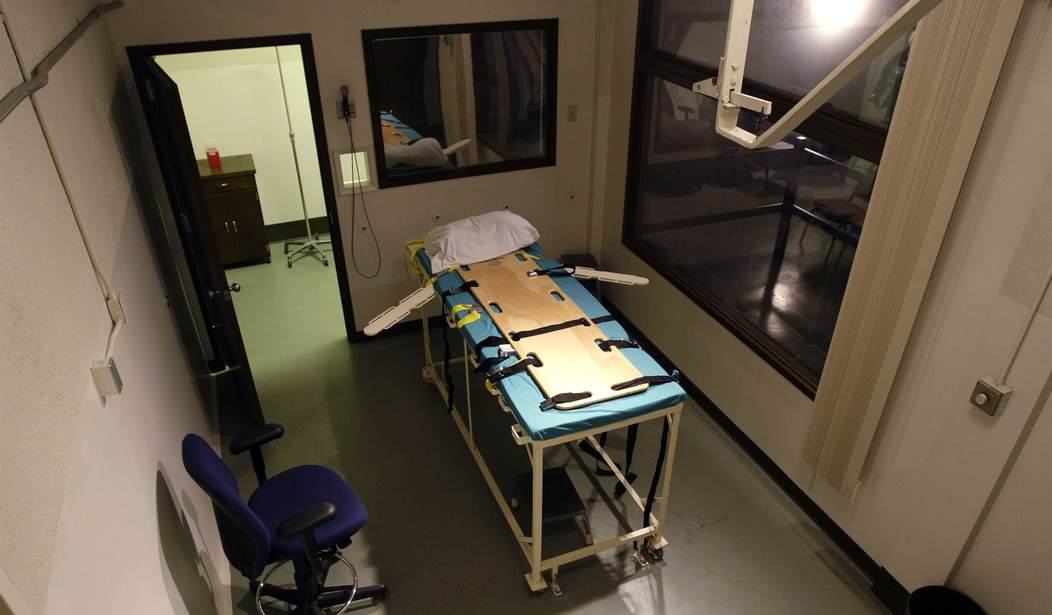Oklahoma’s use of capital punishment might be put on pause for the time being. State lawmakers are rallying behind House Bill 3138, a proposal that would halt executions in the state until 2029.
The bill, spearheaded by a bipartisan group of legislators, would not only implement a pause in executions but would also establish a Death Penalty Reform Task Force aimed at reimagining Oklahoma’s approach to capital punishment.
This development comes amid widespread concern over wrongful convictions and the execution of innocent people. The plight of Richard Glossip, an inmate convicted of murder, figures heavily in this effort. As the state with the highest per capita rate of executions, this bill could be a critical step toward making the state’s justice system more just.
Local lawmakers are responding to a bill that would place a moratorium on executions in Oklahoma.
House Bill 3138, authored by Rep. Kevin McDugle, R-Broken Arrow, would establish a five-person Death Penalty reform Task Force with members appointed by legislative leaders and the governor.
The measure calls for executions to be halted until November 2029, though an amendment could move the deadline to 2026.
Rep. Jared Deck, D-Norman, said the bill will vacate all execution dates until further action by the legislature.
“It also creates and mandates a task force to create reports describing in detail the degree to which recommendations of the 2017 report of the Oklahoma Death Penalty Review Commission have been or have not been put into effect in the state,” Deck said, who co-authored the bill.
He said he signed on to put pressure on legislative and executive branches to take action on recommendations made seven years ago.
During an interview with PBS NewsHour last year, McDugle said, "Right now I don’t believe in the death penalty in Oklahoma. I don’t.”
Other Republican state lawmakers chimed in, giving their takes on the bill.
“If you had told me that I would be standing up here advocating and asking the governor and asking the DA to set these things aside, I wouldn’t have believed you,” said [State Rep. JJ] Humphrey, who represents Lane in southeast Oklahoma. “But when you see what I have seen, you have no choice. It’s high time Oklahoma take a look at these problems and correct it.”
The state put a pause on executions in 2017, after two high-profile botched executions. The state resumed executions in 2021. McDugle and Humphrey have in recent weeks rallied around the case of Phillip Hancock, who is scheduled to be put to death on Nov. 30 for the murders of Robert Jett, Jr., 37, and James Lynch, 57. Hancock has admitted to shooting and killing two men during a 2001 altercation at a southwest Oklahoma City home.
The two state reps not only believe Hancock was acting in self-defense when he fatally shot Jett and Lynch, but claim Hancock had ineffective defense counsel and was subjected to “extreme” prosecutorial overreach from the Oklahoma County district attorney at the time, which led to Hancock’s death row sentence in 2004.
The bill’s origin can be traced back to the acknowledgment of lawmakers on both sides of the aisle that Oklahoma’s implementation of the death penalty has been fraught with systemic failures, including ineffective defense counsel and prosecutorial misconduct.
The task force that the bill would establish would have members appointed by legislative leaders and the governor. Its job will be to compile detailed reports on the state’s adherence to the recommendations made by the 2017 Oklahoma Death Penalty Review Commission. State Rep. Jared Deck asserted “With our history of problems carrying out the execution process and our history of wrongful convictions, pressing pause is the very least we should do.”
As the bill advances, it reflects a broader trend of reevaluating capital punishment in Oklahoma and across the nation. The fact that more Republicans are getting on board with rethinking or even abolishing the death penalty shows how drastically attitudes have changed.
This bill could be a pivotal moment. The possibility that Oklahoma would do away with capital punishment any time soon is a long shot. However, this could be a step in that direction, especially if Oklahomans decide the inevitability of executing an innocent person is not an acceptable tradeoff for putting guilty murderers to death.














Join the conversation as a VIP Member